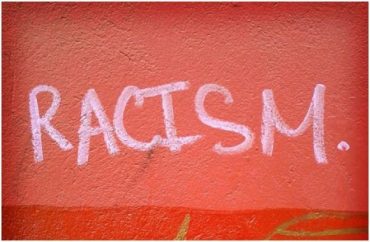
It appears to be getting worse
A bizarre column recently published at The Yale Daily News underscores the uncomfortable state of race relations at many American universities. In a column titled “Evil is Banal,” Yale student writer Isis Marks-Davis writes about the “white boy[s] with shiny brown hair” and “saccharine smile[s]” that hide their “great ambitions.” Fantasizing about seeing one such “boy” at a Senate confirmation hearing years hence, Marks-Davis writes:
I’ll remember a racist remark that he said, an unintentional utterance that he made when he had one drink too many at a frat party during sophomore year. I’ll recall a message that he accidentally left open on a computer when he forgot to log out of iMessage, where he likened a woman’s body to a particularly large animal. I’ll kick myself for forgetting to screenshot the evidence.
And, when I’m watching him smile that smile, I’ll think that I could have stopped it.
The parallels to the Brett Kavanaugh nomination are obvious; indeed, the author refers to Kavanaugh multiple times throughout the piece. For a certain type of partisan, Kavanaugh has come to embody the archetypal “white boy,” a smug villain possessing extraordinary privilege and guilty of terrible crimes (even if there’s no evidence to indicate as much).
There is something deeply unsettling about Marks-Davis’s column, inasmuch as it appears to have gone over without a hitch—nobody on Yale’s campus or at the school’s newspaper, anyway, seems to have much issue with this seething, calmly furious missive that obsesses over the “evil” of “white boys.” There was a time when such a diatribe might have raised eyebrows, and in truth the column probably did unnerve more than a few people. But it’s not politic to say so anymore; any targeted campaign against “white people” is considered more or less de rigueur on campuses these days, both fashionable and in some sense necessary. “I’m watching you, white boy. And this time, I’m taking the screenshot,” Marks-Davis writes. What a weird and disquieting thing to say!
Campus culture appears to be making racial radicals out of otherwise normal and healthy people. The end result is a fractured and deleterious race climate, in which paranoia reigns, mistrust is normal, and racial animosity grows by the day. It is unhealthy and, in a very real way, dangerous. Administrators and students alike should be making it a priority to improve this climate, not further degrade and enflame it, as Marks-Davis plainly does here.
MORE: Campus racial politics and double standards
IMAGE: Andrew Gwozdziewycz / flickr.com
Like The College Fix on Facebook / Follow us on Twitter






Please join the conversation about our stories on Facebook, Twitter, Instagram, Reddit, MeWe, Rumble, Gab, Minds and Gettr.